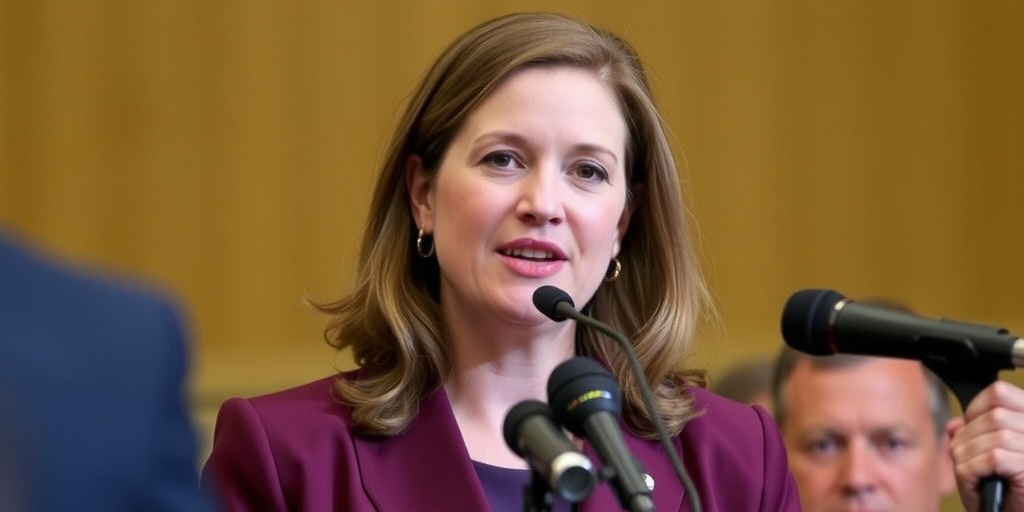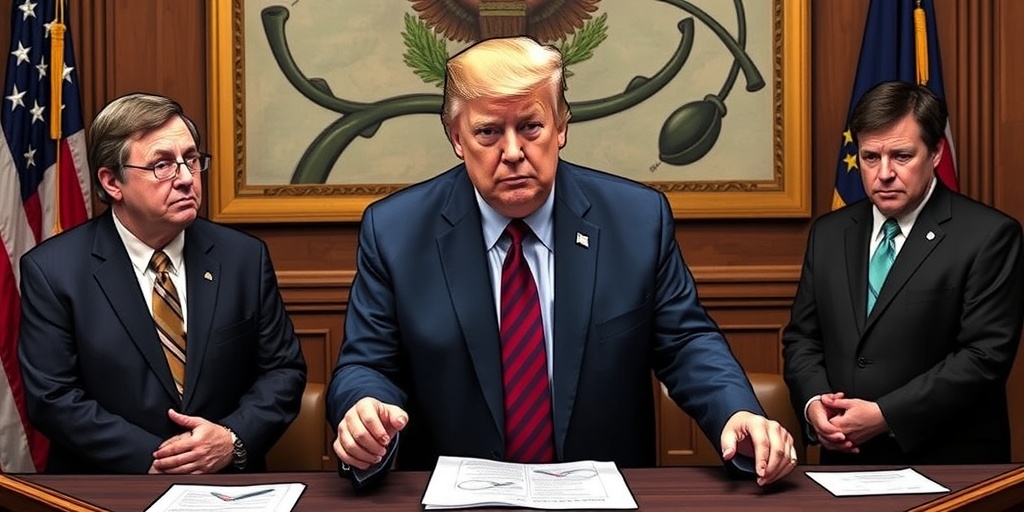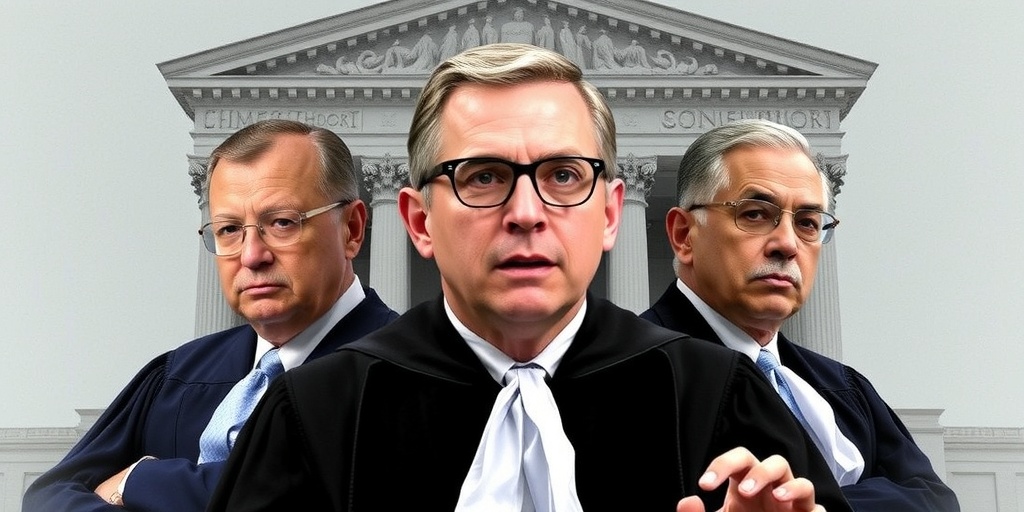Now Reading: Stefanik’s Confirmation Stalled as GOP Protects Narrow Majority
-
01
Stefanik’s Confirmation Stalled as GOP Protects Narrow Majority
Stefanik’s Confirmation Stalled as GOP Protects Narrow Majority

Stefanik’s Confirmation Delayed Amid Budget Pressures on House Speaker Johnson
This week, Speaker of the House Mike Johnson provided insight into why Representative Elise Stefanik of New York has not yet had her confirmation vote as ambassador to the United Nations. Johnson indicated that he is reluctant to risk losing a crucial Republican vote in the House as he navigates the challenges of passing a vital budget resolution.
With Republicans holding a precarious majority, Johnson faces significant pressure to unite his fractious conference. At present, he can only afford a single vote margin, making every decision regarding party loyalty and support critical. The speaker characterized Stefanik as a key player, emphasizing her past leadership experience and the importance of her presence in the House as they work towards passing the budget resolution.
“If we get the budget resolution passed this week, which is the plan, then it’s possible that Elise Stefanik would move on to her assignment at the U.N. as the ambassador there,” Johnson stated during remarks at the America First Policy Institute. This statement underscored the precarious political landscape in which Johnson operates. The ongoing efforts by President Trump to fill his administration’s ranks have left Republicans with fewer votes to spare, intensifying the pressure on Johnson as he tries to maintain party unity.
A spokesperson for Johnson added that the timing of Stefanik’s confirmation is ultimately something that the White House and Senate must decide, indicating that the speaker supports their timeline. With the Senate Republican leadership scheduling numerous other confirmation votes, the heightened majority pressure in the House is making it crucial for Stefanik to remain in her current position for the time being.
The Senate has been actively confirming Trump’s cabinet nominations, with 17 cabinet members successfully approved thus far. However, Stefanik remains one of the only five cabinet nominees yet to receive a Senate vote. Johnson made it clear that he cannot afford to lose Stefanik right now, particularly with a looming budget plan and a short-term spending bill needed to prevent a government shutdown set for March 14.
“I had 220 Republicans and 215 Democrats, and then President Trump began to cull the herd,” Johnson remarked. “We have a one-vote margin now—smallest in history, right? This is not an easy task, but we’re going to get it done.” Even with Stefanik’s support, it remains uncertain whether Johnson will secure enough votes to pass the budget resolution, with several Republicans vocalizing reservations about the proposed plan.
In the meantime, Stefanik finds herself in an awkward limbo, as she has not been assigned to any subcommittees in the current Congress. Despite this, she has continued to attend committee hearings. The ongoing geopolitical issues, particularly a confrontation over Ukraine at the United Nations, have unfolded without her involvement, leaving her in a difficult position.
During the recent Conservative Political Action Conference (CPAC), Stefanik was introduced as the “United Nations ambassador-designate,” a title that underscores her anticipated role, despite her existing responsibilities in Congress. In her remarks at CPAC, she expressed enthusiasm about the work being done on behalf of Trump’s administration and reaffirmed her commitment to enacting his policies within Congress.
Relief may be on the horizon for both Stefanik and Johnson come April, as elections are anticipated to fill two vacant House seats left by the departures of former Representatives Mike Waltz and Matt Gaetz, both of whom resigned amid controversies. The election of their successors may provide Johnson with some additional margin for maneuverability within the House.
Should Stefanik receive her confirmation and transition to the U.N., New York Governor Kathy Hochul would then be required by law to schedule a special election within 90 days to fill her congressional seat. Some Democratic lawmakers in New York have proposed legislation that would enable Hochul to delay this special election, particularly in Stefanik’s conservative district, but Johnson remains hopeful for a swift resolution.
"This is a critical moment, and it’s imperative that we respect the law and allow the timely filling of this seat," Johnson noted, underscoring the importance of maintaining party cohesion while navigating the complexities of governance.
For now, Stefanik’s position in the House remains secure, but the possibility of her transition to the U.N. continues to be tangled with the intricacies of the current political climate and budgetary concerns. The fate of her confirmation and the implications for the House Republican caucus remain finely poised as they approach critical legislative deadlines.
Stay Informed With the Latest & Most Important News
Previous Post
Next Post
-
 01New technology breakthrough has everyone talking right now
01New technology breakthrough has everyone talking right now -
 02Unbelievable life hack everyone needs to try today
02Unbelievable life hack everyone needs to try today -
 03Fascinating discovery found buried deep beneath the ocean
03Fascinating discovery found buried deep beneath the ocean -
 04Man invents genius device that solves everyday problems
04Man invents genius device that solves everyday problems -
 05Shocking discovery that changes what we know forever
05Shocking discovery that changes what we know forever -
 06Internet goes wild over celebrity’s unexpected fashion choice
06Internet goes wild over celebrity’s unexpected fashion choice -
 07Rare animal sighting stuns scientists and wildlife lovers
07Rare animal sighting stuns scientists and wildlife lovers





















